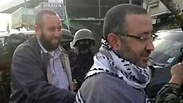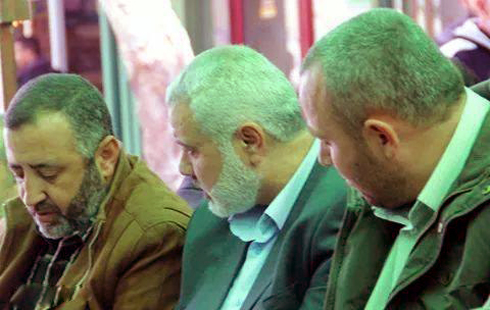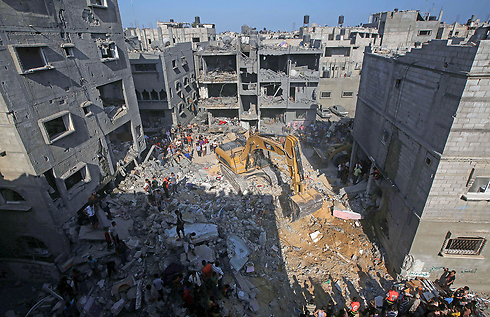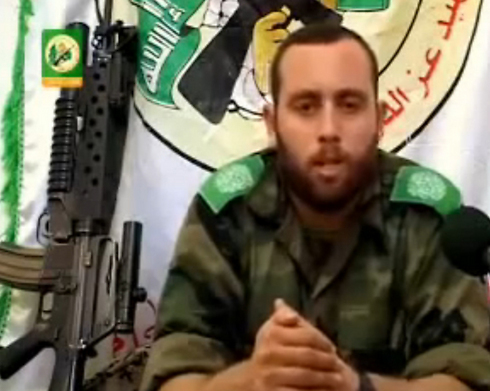
Israel's targeted killings are a Gaza game-changer
It is not clear what has led to this successful shift in Shin Bet and Military Intelligence operations, but it has dealt Hamas a blow and may well put all of its leaders in mortal danger.
The third and fourth eliminations within the Hamas military wing came the night after what appears to have been a strike on their commander Mohammed Deif – this is apparently a pretty hard strike on the organization's command and control capabilities, not to mention damaging the morale of their subordinates.
Nonetheless, it is better that we in Israel do not enter into a state of euphoria over this. The ruins of the house where Deif was possibly located and the remains of the hiding place of the three commanders in Rafah are not images of victory.
This stage of the campaign will probably be short-lived and help to avoid a long war of attrition. But it does not eradicate the Hamas military wing, given that the Izz al-Din al-Qassam Brigades have recently begun to function as a military institution.
Two of those killed overnight, Raed al-Attar and Mohammed Abu Shamala, were Hamas' most important field commanders, while the third, Mohammed Barhoum, was the logistics man. But just as with an army, so it is with a quasi-military organization, and an assault on its top brass is not a paralyzing blow. There are replacements who will quickly fill their shoes.
The rocket fire will perhaps be more sporadic, however, and - more importantly - there may not be the bold initiatives that only an experienced and strategically nimble commander can conduct, reliant on the personal charisma that earns them such popularity among their people.
The bottom line: There will be a blow to the operational capability of Hamas's military wing, but it is hard to predict to what extent it will change the conduct of the war against Israel. For now, the indiscriminate firing and strident statements we see are an indication of the impact on Hamas and its leadership, but we should not view them as capitulation.
We have already seen with the killing of Hamas' military leader Ahmed Jabari, at the start of Operation Pillar of Defense, how quickly they can find a replacement. The organization continued to fire until the very end of the operation and even a little afterwards.
It is important to note that the strike on Mohammed Deif could well be a more serious blow to morale, given the way that both Israel and the Palestinians have mythologized him. But in terms of military functionality, the killing of the trio Wednesday night was more significant.
How did it happen?
From an Israeli perspective, one must shamelessly admit that the pinpoint attacks on Deif, al-Attar, Shamallah and Barhoum have lifted the spirits.
More importantly, these attacks are an answer to the so-called professional critics who claimed that Military Intelligence and the Shin Bet had lost their creative edge and their ability to strike the terrorist leaders.
Killing and wounding the heads of the terrorist and guerrilla groups hinders their operational ability, hurts the motivation of their fighters on the ground and impairs the activities of the organization or group - even if they are fanatical Islamists.
It is for this reason that the American drone war being waged against the central branches of al-Qaeda in Afghanistan, Yemen, Somalia and Iraq has led to a significant reduction in the organization's operations and the damage it causes. But it is not enough to target their leaders.
Israel must create several other realities, first and foremost the isolation of the terrorists and guerrillas from the population that supports them financially, operationally and morally - and this is still not happening with Hamas. The Gazan population hates Israel and blames it more for its distress than it does Hamas and its military wing.
In fact, when the military wing fires rockets at Israel it gives Gaza's non-combatant citizens a sense of satisfaction and revenge, and eases the suffering in no small way. The ongoing rocket fire does not divide the military wing from the Gazan civilians, quite the reverse.
But this should not overshadow the huge achievements that IDF intelligence and the Shin Bet have racked up over the last two days. The defense minister was right in saying that the killing of Hamas leaders "was a very great intelligence and operational coup."
Moshe Ya'alon cannot go into detail, but one can certainly take the view that something outstanding has happened in the intelligence community to enable an attack on the most high-ranking of senior Hamas officials, so accurately and in such a short space of time. Three main factors in general facilitated such an achievement:
1. Senior Hamas figures have become incautious, making mistakes that exposed their positions, out of the assumption that Israel will not target them. Perhaps this even stems from hubris and overconfidence.
2. The Shin Bet and the Military Intelligence made a tactical error at the start of Protective Edge, which deterred them from hitting the senior Hamas officials in hiding, and prevented serious injury to the organization's internal communications system and command and control centers, which were close to intact until the recent ceasefire.
The IDF was forced to hit the homes of senior officials, but was unable to create a situation in which those officials were targeted by a smart bomb without being surrounded by hundreds of non-combatants who would have been hit alongside them.
3. A breakthrough in technological intelligence achieved during the operation that allowed Israel to track these officials minute by minute, until they were in a situation where they could be hit without dozens of non-combatants being killed as well. The Air Force has long been able to "close the circle" quickly and efficiently – when it has a target.
I believe a joint operational-organizational learning curve in the Shin Bet and Military Intelligence has led to a breakthrough in their ability to get an intelligence handle on the leadership, and more.
This is a phenomenon that is not yet making the headlines, one which explains why in the last 48 hours there have been continuous attacks on what the IDF calls "launching activists" of rockets and mortars. By my account, at least 14 of those launching rockets and firing mortars have been killed in the last 48 hours.
Experts assemble
I do not know (and even if I did, I would not be allowed to say) what has facilitated this breakthrough, or its exact nature. It is only known that the Military Intelligence and Shin Bet want results, and as such have put together a team draw from all areas of intelligence.
HUMINT, SIGINT (the 8200 unit), researchers and professionals have together succeeded– through cooperation between the IDF and Shin Bet – in getting an effective intelligence handle even on the most elusive of targets.
It's only a matter of time before this team finds a solution to even the thorniest of problems. It appears that this is the zenith in the operations of the Military Intelligence, who with Shin Bet professionals have been able to solve a problem that seemed unsolvable.
What does this mean for the future? It actually bodes well. It means that Military Intelligence are drawing conclusions and implementing them very quickly to produce results. This is also the case for the Shin Bet. And it is very encouraging when you are in a neighborhood such as the one Israel lives in.
As stated, there is no image of victory - not for us and not for them - but our sense of security has been heightened by the events of the past two days, and Hamas may well conclude that violating the ceasefire on Tuesday was one of the worst strategic mistakes it has ever made.













